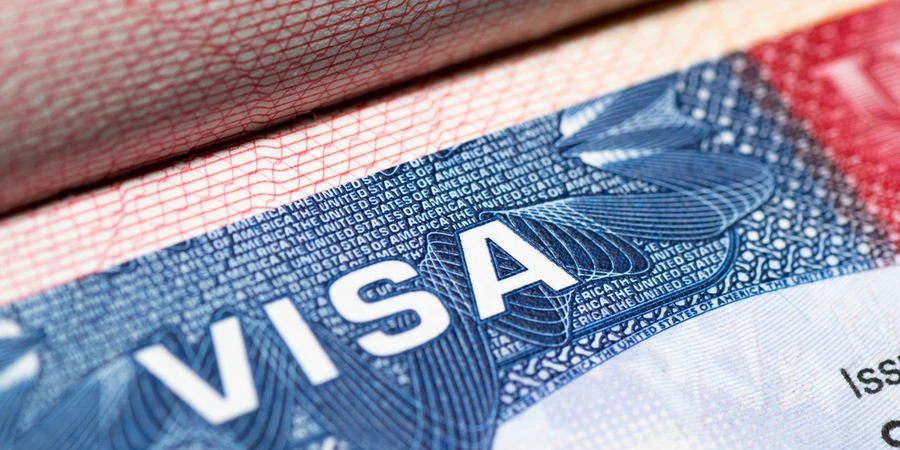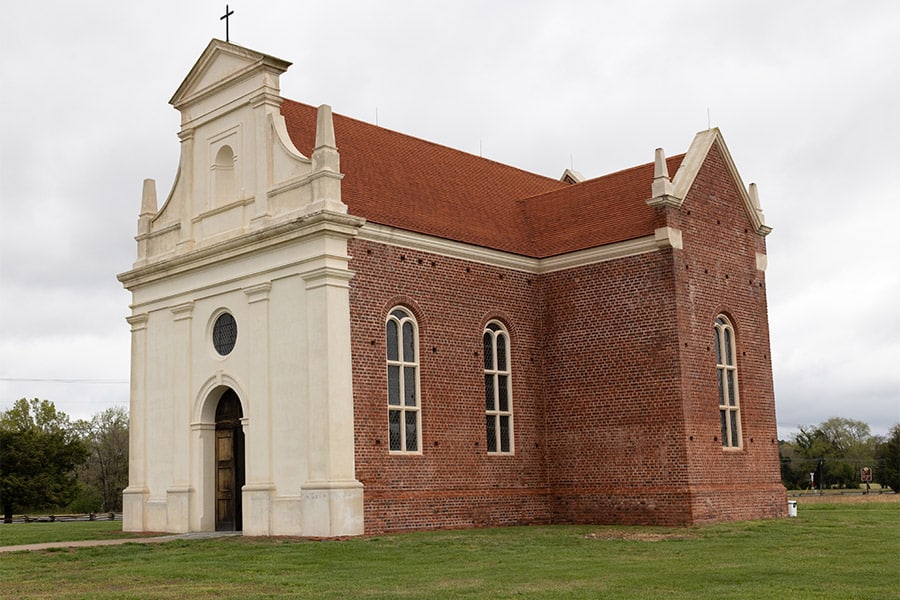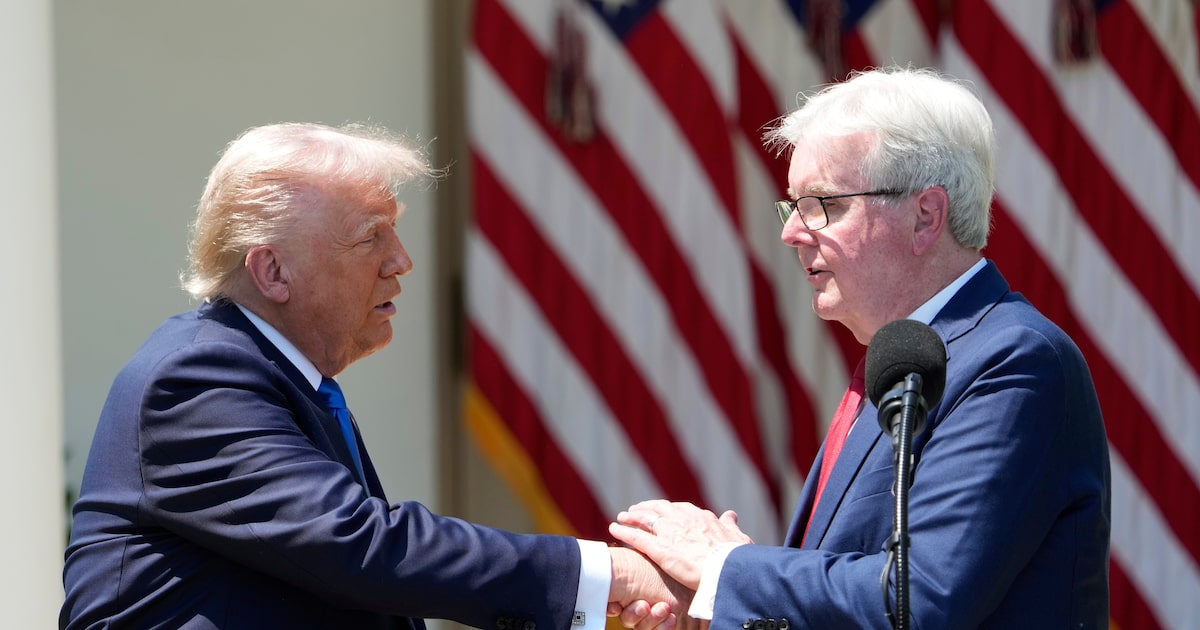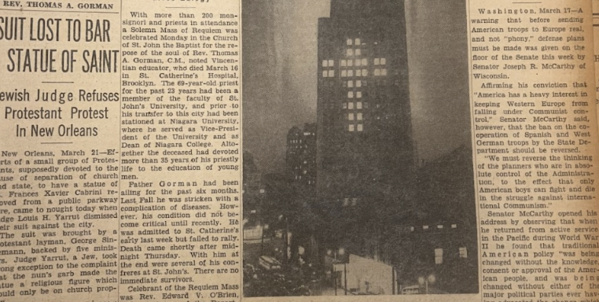Faith and Labor: Catholic Bishops Champion Immigrant Religious Workers' Right to Stay
Religion
2025-04-08 18:14:00Content

Religious leaders across the United States are celebrating a promising bipartisan initiative that could provide crucial support for religious workers, including Catholic priests, seeking to maintain their vital ministry within the country. The proposed legislation aims to extend special visas, offering hope and stability to clergy members who play essential roles in their communities.
Several U.S. bishops have enthusiastically endorsed the proposed measure, recognizing its potential to protect and preserve the important work of religious professionals from around the world. The visa extension would help ensure that churches, parishes, and religious organizations can continue to benefit from the diverse talents and spiritual guidance of international religious workers.
This collaborative effort highlights the importance of supporting religious diversity and the critical contributions of clergy members who serve multicultural congregations across the nation. By addressing visa challenges, the proposed legislation could help maintain the rich spiritual landscape of American communities and support the ongoing mission of religious institutions.
As discussions progress, religious leaders remain optimistic that this bipartisan approach will provide a meaningful solution for religious workers seeking to continue their important work in the United States.
Religious Workers' Visa Crisis: A Lifeline for Faith Communities in America
In the intricate landscape of immigration policy, a critical challenge emerges that threatens the spiritual fabric of religious institutions across the United States. The potential disruption of religious worker visas poses a significant risk to the diverse faith communities that rely on international clergy and religious professionals to sustain their spiritual practices and community services.Preserving Spiritual Diversity: A Crucial Immigration Challenge
The Visa Dilemma: Understanding the Stakes
The current immigration framework presents a complex challenge for religious organizations nationwide. Catholic dioceses, along with other faith communities, are confronting a potential crisis that could dramatically reshape their ability to maintain spiritual leadership and community engagement. Religious workers, particularly priests, missionaries, and specialized spiritual leaders, face unprecedented uncertainty in their ability to continue serving American congregations. The proposed bipartisan legislation represents a critical intervention, recognizing the profound cultural and spiritual contributions of international religious professionals. These individuals do more than perform religious ceremonies; they bridge cultural divides, provide essential community support, and maintain intricate spiritual traditions that are fundamental to many immigrant and established communities.Navigating the Legal Landscape: Challenges and Opportunities
Immigration law for religious workers is a nuanced and complex domain that requires careful legislative consideration. The current visa system has significant limitations that potentially restrict the ability of religious organizations to recruit and retain qualified spiritual leaders from around the world. These restrictions not only impact individual congregations but also have broader implications for cultural diversity and religious freedom in the United States. Bishops and religious leaders are actively advocating for comprehensive reforms that would provide more stable and predictable pathways for religious workers. Their efforts highlight the critical role these professionals play in maintaining social cohesion, providing community support, and preserving important cultural and spiritual traditions.Economic and Cultural Implications of Religious Worker Visas
Beyond the spiritual realm, religious worker visas have substantial economic and social implications. These professionals contribute significantly to local communities, providing social services, educational programs, and critical support networks that extend far beyond traditional religious practices. The potential loss of international religious workers could create substantial gaps in community services, particularly in areas with diverse immigrant populations. These professionals often serve as cultural mediators, language translators, and essential support systems for vulnerable community members.Bipartisan Efforts: A Beacon of Hope
The emerging bipartisan initiative represents a rare moment of political consensus in the typically contentious immigration debate. Lawmakers from different political backgrounds are recognizing the unique value that religious workers bring to American society, transcending traditional partisan divisions. This collaborative approach suggests a growing understanding that immigration policy must be nuanced, recognizing the specialized contributions of professionals who serve critical social and spiritual functions. The proposed legislation could set a precedent for more holistic and compassionate immigration frameworks.Future Outlook: Protecting Religious Diversity
As the legislative process unfolds, religious communities across the nation are watching closely. The potential extension of religious worker visas represents more than a legal technicality—it is a profound statement about America's commitment to religious freedom, cultural diversity, and the fundamental right of communities to maintain their spiritual traditions. The ongoing dialogue surrounding these visa provisions reflects the complex, dynamic nature of immigration policy and its deep interconnection with cultural preservation and social integration.RELATED NEWS
Religion

Restored Sanctuary Reveals Maryland's Pioneering Legacy of Religious Tolerance
2025-04-18 12:00:00
Religion

Rare Religious Liberty Manuscript Unveiled: A Glimpse into America's Founding Principles
2025-04-15 17:24:21
Religion

Faith and Power: Trump Enlists Dan Patrick to Spearhead Religious Liberty Crusade
2025-05-01 22:40:00





